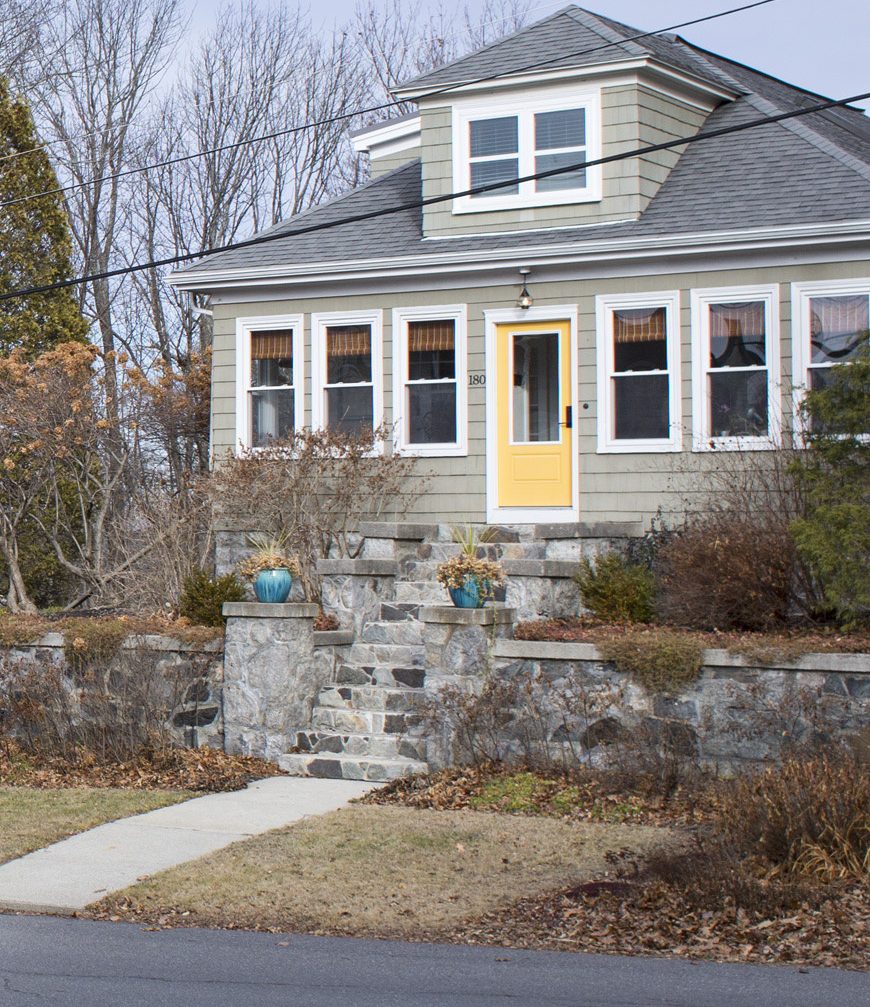SOUTH PORTLAND — The City Council gave final approval Tuesday night to a modified version of controversial short-term rental regulations that ban unhosted Airbnb-style accommodations in all residential neighborhoods.
The council concluded nearly four hours of heated testimony and deliberations with two 5-2 votes on the retooled rules that will allow hosted or owner-occupied short-term rentals in all zoning districts.
A majority of councilors acted to stop single-family homes from being bought up and rented out as non-owner-occupied properties for less than 30 consecutive days at a time. The regulations take effect Jan. 1.
Councilors discounted by-now-familiar testimony about the economic benefits of short-term rentals and allegations that a former code enforcement officer told some people it was OK to operate them.
“We’ve worked hard to have a good result for the vast majority of people,” said Councilor Kate Lewis, who voted for the regulations along with councilors Sue Henderson, Claude Morgan, Maxine Beecher and Mayor Linda Cohen.
Councilors Adrian Dowling and Eben Rose voted against the regulations. Dowling questioned why they include a ban on short-term rentals in multi-family buildings in commercial zones. Rose questioned their enforceability and predicted they would be challenged with a second referendum petition or lawsuit.
In February, the council adopted a first set of zoning and licensing rules for short-term rentals that were among the most restrictive in Greater Portland. The council repealed the regulations in April, after opponents collected enough petition signatures to force the rules to be reconsidered or sent to referendum.
NATIONAL PROBLEM, LOCAL RULES
South Portland is among dozens of cities across the country that have wrangled with growing popularity of short-term rentals available through websites such as Airbnb and HomeAway.
As of last November, there were 282 short-term rentals in South Portland listed on multiple websites, and 75 percent of them were for entire homes, according to the city’s online consultant.
Among the regulations approved Tuesday night:
• Short-term rentals in residential districts will be limited to hosted stays in dwellings of one to four units. Operators will have to prove a property is their primary residence under the state’s homestead tax exemption. Unhosted stays will be limited to detached single-family dwellings in commercial zones.
• Short-term rentals may host as many as two adult guests per bedroom, with a maximum of six guests per house. The original ordinance capped the total number of guests at two adults.
• Short-term rentals must have sufficient on-site parking for all guest vehicles, under an amendment offered by Councilor Dowling and unanimously approved by the council. Guest parking on the street is prohibited.
• Owners of two- or three-unit apartment buildings in residential zones may operate one unit as a short-term rental, as long as they live in one of the other units; owners of four-unit buildings may operate two apartments as short-term rentals if they live on the premises.
• Short-term rentals are prohibited in apartment buildings of five units or more, as well as in non-residential buildings or in detached accessory buildings, camper vans, tents, trailers or mobile homes. Authorized accessory dwelling units, such as in-law apartments or guest houses, may be used as short-term rentals only when the homeowner is present.
• To prevent smaller apartment buildings from being converted to condominiums, short-term rentals are explicitly prohibited in two- to four-unit buildings where the units are owned individually. In general, the ordinance prohibits short-term rentals in multi-unit condo buildings but allow them in detached single-family condos.
• Owners of detached single-family homes may rent their houses for at least seven days and as many as 14 days per year when they are away. The council dropped an initial ban on homeowners renting out their houses while on vacation.
• All short-term rentals must be inspected, insured and licensed by the city by the time the ordinance goes into effect next year. Fines for violations will range from $500 to $1,500 per day.
FORUMS FOR FEEDBACK
Also Tuesday night, the council unanimously directed the city manager to organize a series of moderated community forums to gather feedback on the regulations and suggest changes that might be considered in the future.
City staff will be expected to organize the forums, gather community feedback on the regulations and potential changes, and report the results to the council before January for its consideration.
A year later, in January 2020, staff will be expected to submit a report to the council on the city’s experience with the regulations. The council stopped short of requiring future members to revisit the ordinance by July 2020 and determine whether any amendments are warranted.
Councilor Henderson proposed the forums as a way to resolve anger and distrust that’s apparent on both sides of the issue, but supporters of the regulations showed little interest.
They urged councilors to stay strong in their resolve to preserve housing for residents rather than visitors and prevent residential neighborhoods from being diminished by commercial investment properties.
“To me it’s black and white – the zone is the zone,” said Deborah Pearce of Ocean View Avenue.
Paul Vose, a Cape Elizabeth resident who operates an unhosted short-term rental at 10 Ocean House Road, said he was disappointed with the way the council handled the controversy since it cropped up last summer.
“I’m bothered by the process,” Vose said after the council vote. “I’m fine with renting (my property) long-term, but the community forums should have come long before this.”
Kelley Bouchard can be contacted at 791-6328 or at:
kbouchard@pressherald.com
Twitter: KelleyBouchard
Send questions/comments to the editors.



Comments are no longer available on this story